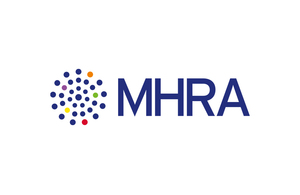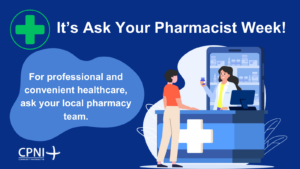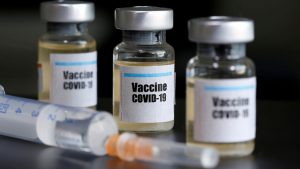
Community Pharmacies Prevent Over One Million GP Appointments
Days after the publication of the Department of Health’s Winter Preparedness Plan, MLAs at Stormont have heard that Community Pharmacy consultations prevent over a million GP appointments and tens of thousands of A&E visits a year.
At the meeting with an all-party group of elected representatives, the Chief Executive of Community Pharmacy Northern Ireland (CPNI), Gerard Greene, shared the high-level findings of a survey of everyday patient consultations, that do not fall within commissioned pharmacy services, and which prevented attendance at other healthcare services.
Gerard Greene, Chief Executive of Community Pharmacy Northern Ireland (CPNI) said,
“The findings of the survey conducted in September 2025, show that 24,700 unfunded community pharmacy consultations requiring treatment or intervention are typically undertaken each week. That represents 1.28 million patient consultations across 507 pharmacies annually in NI.
“Of these, 136,000 would have resulted in GP out of hours consultations (at weekends) and 47,000 patients would otherwise have resorted to seeking help at an Emergency Department. The remaining 1.1million patients were given diagnosis, treatment or advice which, in the absence of a local pharmacy, would have required a GP appointment.”
In spite of this success story, Community Pharmacy NI says that opportunities have been missed to build further and make better use of pharmacies’ clinical expertise in tackling winter pressures.
Gerard Greene continued,
“The 2025/26 Winter Preparedness Plan published last week recognises the role that community pharmacy teams can play in relieving winter pressures on other parts of the health and social care system.
“The findings of our survey provide a striking indicator of the scale of the workload and the heavy lifting that is being done by community pharmacy teams on top of the normal health services that are provided. They play a vital role in the frontline of healthcare here, as trusted clinical experts, available without an appointment, within less than a five mile radius for the majority of the population.
“However, we believe that key opportunities have been missed to build on treatment programmes which are proven to take pressure off other parts of the health system.
“There are many additional services which are funded and commissioned under Pharmacy First services in other UK regions– for conditions like sinusitis, ear infections, impetigo, blood pressure and many other common ailments.
“As things currently stand, a highly qualified pharmacist faces the incredibly frustrating scenario of assessing and diagnosing conditions and knowing the treatment required but having to refer the patient in front of them to a GP, out of hours service, or Emergency Department, to access the treatment. This is a missed opportunity to take additional (and we would even say, unnecessary) pressure out of the system.
Gerard Greene highlighted that the survey had also shone a light on the extent of the numerous exceptional circumstances in which pharmacists provided urgent, unplanned, or emergency care: delivering first aid to patients who had collapsed or been injured, assessing and signposting patients presenting with symptoms associated with serious medical conditions such as stroke, heart attack, and hypoglycaemia, managing safeguarding and mental health crises.
Despite the obvious clinical value of community pharmacy practice and its contribution to the overall system, much of this additional work remains unfunded.
Gerard Greene concluded,
“Sustainable funding and further service development are urgently needed to ensure that community pharmacies can continue to deliver these essential interventions. Community pharmacies cannot simply absorb additional workload when other parts of the service come under pressure. We are seeking fair funding for the clinical expertise and the very valuable contribution made by community pharmacies to keep people well in winter, and throughout the year.”





